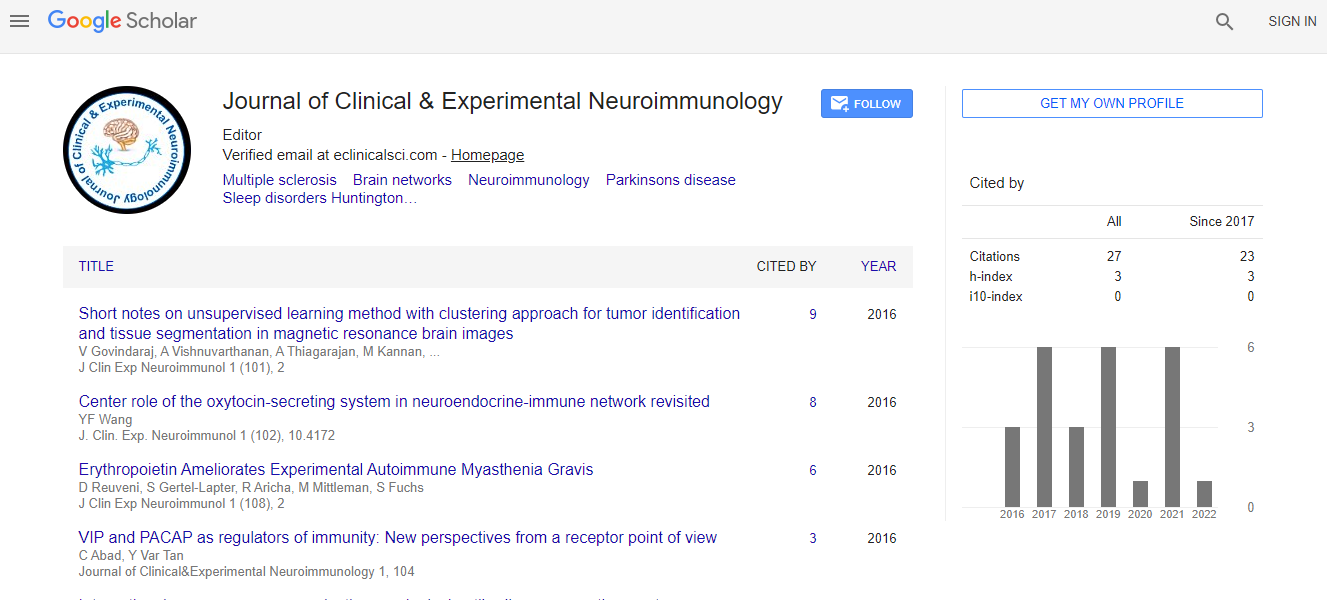Research Article
International Consensus: Paraneoplastic Neurological Antibodies - are we there yet?
Abid Karim1,3*, William Egner2, Dina Patel2, Alex Richter1,3 and Saiju Jacob1,3
1Neuroimmunology, Clinical Immunology Service, University of Birmingham, Birmingham, B15 2TT, UK
2UK NEQAS Immunology, Immunochemistry & Allergy, Northern General Hospital, Herries Road, Sheffield, S5 7AU, UK
3Queen Elizabeth Neurosciences Centre, University Hospital Birmingham NHS Foundation Trust, Birmingham, B15 2TH, UK
- *Corresponding Author:
- Abid Karim
Neuroimmunology, Clinical Immunology Service
University of Birmingham, Birmingham, B15 2TT, UK
Tel: +44 (0)121 415
E-mail: a.r.karim@bham.ac.uk
Received date: Jan 08, 2016; Accepted date: Mar 18, 2016; Published date: Mar 22, 2016
Citation: Karim A, Egner W, Patel D, Richter A, Jacob S (2016) International Consensus: Paraneoplastic Neurological Antibodies - are we there yet?. J Clin Exp Neuroimmunol 1:105. doi: 10.4172/jceni.1000105
Copyright: © 2016 Karim A, et al. This is an open-access article distributed under the terms of the Creative Commons Attribution License, which permits unrestricted use, distribution, and reproduction in any medium, provided the original author and source are credited.
Abstract
A survey amongst the participants of the Paraneoplastic Neurological Antibody Scheme, registered with United Kingdom National External Quality Assessment Service (UK NEQAS), across the UK, continental Europe and non- European countries examined various factors involved in the laboratory diagnostic methodologies, timely provision of results and a snapshot of External Quality Assessment (EQA) performance to ascertain the level of harmonisation amongst participating laboratories. Despite variations in some aspects of the analytical methods there appears to be a good agreement in the outcome of the results as demonstrated by the EQA performance.

 Spanish
Spanish  Chinese
Chinese  Russian
Russian  German
German  French
French  Japanese
Japanese  Portuguese
Portuguese  Hindi
Hindi 
